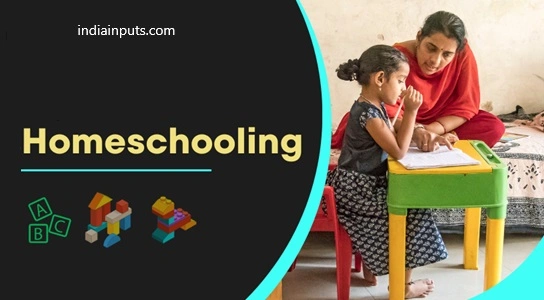Homeschooling, a growing global trend, is gaining traction among Indian parents seeking alternative education options for their children. While traditional schooling remains the dominant norm, many families are exploring homeschooling to provide personalized learning experiences.
Legal Perspective on Homeschooling in India

India does not have explicit laws that either prohibit or endorse homeschooling. The Right to Education Act (RTE), 2009, mandates free and compulsory education for children aged 6 to 14. It specifies that education must be provided by a recognized school, but it does not explicitly state that homeschooling is illegal. This lack of clarity creates a legal gray area, leaving homeschooling largely unregulated.
In 2014, the Delhi High Court acknowledged the right of parents to choose alternative methods of education, including homeschooling. This decision was based on the fundamental rights guaranteed by Article 21A of the Indian Constitution, which ensures every child’s right to education, and Article 19(1)(a), which grants freedom of expression and choice. However, the judgment also emphasized the importance of meeting learning outcomes equivalent to formal schooling.
Why Do Parents Opt for Homeschooling?
Homeschooling in India is driven by diverse motivations, such as:
- Personalized Learning: Parents can tailor the curriculum to their child’s interests, learning style, and pace, fostering a deeper understanding of subjects.
- Avoiding Pressure: Many families choose homeschooling to shield children from the competitive and stressful environment of traditional schools.
- Special Needs Education: Homeschooling provides flexibility for children with disabilities or special learning needs, which conventional schools might struggle to accommodate.
- Cultural or Religious Reasons: Some families prefer homeschooling to impart specific cultural, religious, or moral values that align with their beliefs.
Challenges of Homeschooling in India
Despite its appeal, homeschooling faces several challenges in India:
- Lack of Regulation: The absence of a formal legal framework creates uncertainty about homeschooling’s legitimacy and recognition.
- Assessment and Certification: Homeschooled children must appear as private candidates for board exams like the NIOS (National Institute of Open Schooling) or the Cambridge International Examinations, which can be challenging to navigate.
- Socialization Concerns: Critics argue that homeschooling may limit children’s social interactions, affecting their interpersonal skills and peer learning opportunities.
- Parental Commitment: Homeschooling demands significant time, effort, and resources from parents, making it a challenging option for working families.
The Future of Homeschooling in India
As awareness grows, homeschooling communities and support networks are emerging in cities like Bengaluru, Mumbai, and Delhi. Online platforms, edtech tools, and global curricula are making homeschooling more accessible. However, for homeschooling to thrive, India needs clearer policies and guidelines that address concerns about quality, certification, and accountability.
Conclusion
Homeschooling is allowed in India by virtue of not being explicitly prohibited, but it exists in a legal and regulatory gray area. For parents seeking alternatives to traditional education, homeschooling offers flexibility and a tailored learning experience. However, its broader acceptance hinges on policy reforms and societal recognition. As India’s education landscape evolves, homeschooling is likely to play a more prominent role in offering diverse and inclusive learning options.

